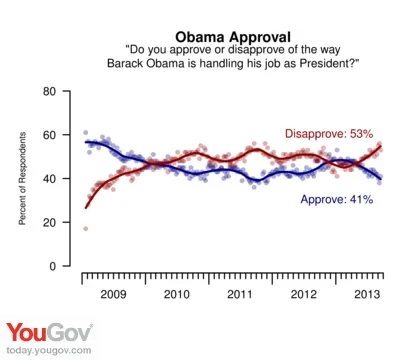Americans are still largely opposed to an attack on Syria but tend to think that President Obama will follow through and launch an attack if they refuse to disarm their chemical weapons.
Saturday’s agreement between the U.S. and Russia on a framework to remove chemical weapons from the Syrian government’s control has done little to change Americans’ negative feelings about U.S. involvement there. The latest Economist/YouGov Poll finds Americans distrustful of Russian and Syrian intentions, unhappy with President Obama’s management of the crisis, and opposed to any U.S. military action even if Syria refuses to comply with U.S.-Russia demands.
Last week, when it appeared that the President was ready to order a military strike against the Syrian regime, Americans opposed such a strike 21% to 57%. Those figures have changed hardly at all this week, even though in the last week the President asked Congress to vote on the authorization of force – something most Americans favor – and the U.S. and Russia reached an agreement on a proposal to eliminate the Syrian government’s chemical weapons.
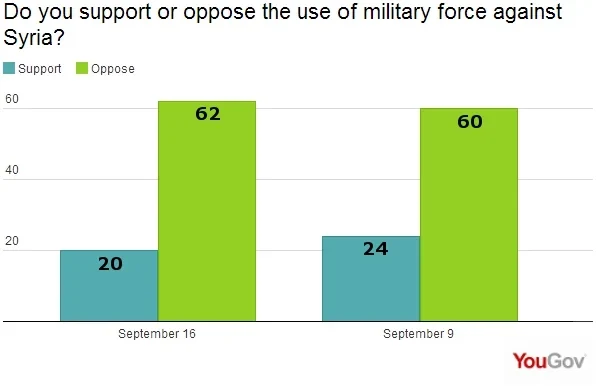
Americans simply don’t believe that the agreement will work.
- 54% don’t trust Russia as a negotiator.
- 60% don’t trust the Syrian government, and believe that it is simply stalling for time.
- By a margin of more than two to one – 43% to 19% -- Americans don’t believe the Syrian government will surrender its chemical weapons.
And there has been no change at all in American expectations of what will eventually happen. Despite the events of the last week, Americans believe by three to one that President Obama will eventually order military strikes against Syria.
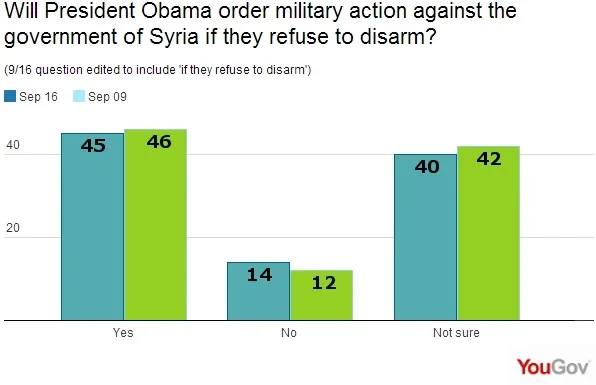
Both Republicans and Democrats expect military action.
Americans oppose those strikes even if the Syrian government refuses to surrender its chemical weapons. Support for strikes in that circumstance rises hardly at all, and opposition to those strikes drops only ten points from what it is in the general question.
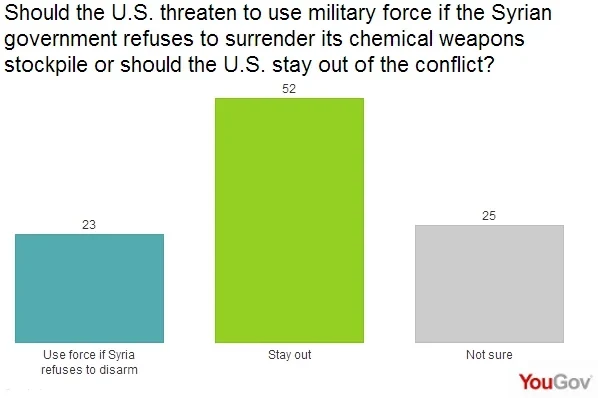
There are several possible reasons for American alarm over the possibility of air strikes. Americans view Syria negatively – in fact, more say Syria is an enemy of the United States than think that about any country but Iran. Syria is seen as more dangerous that even the U.S.’s perennial “enemy,” Russia.
But Russia’s image has also suffered. More now describe Russia as “unfriendly” or as an “enemy” than did so in August, after Russia granted asylum to Edward Snowden, the National Security Agency analyst who leaked information about U.S. government surveillance activities.
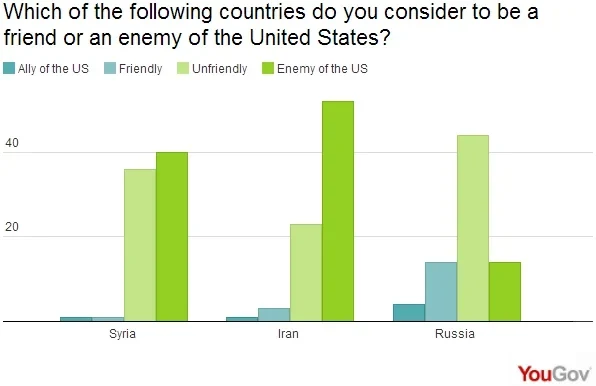
Lack of trust in the countries involved makes Americans dubious about the possible success of any agreement.
But in addition, after years of involvement in Iraq and Afghanistan, Americans are hesitant about another military incursion in the Middle East, even though the President has stressed that this one, if ordered, would not include “boots on the ground.” Nearly half the public know someone who has served in Iraq and nearly as many know someone who has served in Afghanistan. 13% know someone who died in military action in one of those countries (more than know someone who was killed in the 9/11 terrorist attacks).
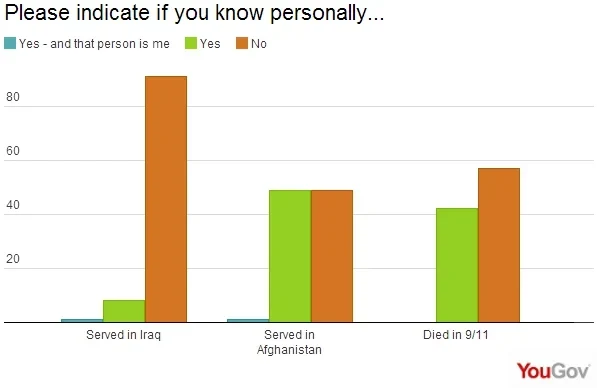
Republicans are somewhat more opposed than Democrats to U.S. military action in Syria (though half of Democrats also oppose military force there). They are also more likely to know someone who has died in Iraq or Afghanistan. 18% of Republicans and 10% of Democrats know someone who was killed in those countries. Republicans are also more likely to know someone who served in those countries.
The Syria crisis has not been good to the President. Even the good news of a U.S. agreement with Russia to rid Syria of chemical weapons, and the Syrian government’s stated cooperation has not boosted public approval of the way he is handling the Syrian situation. Last week, 28% approved, and this week that figure is the same.
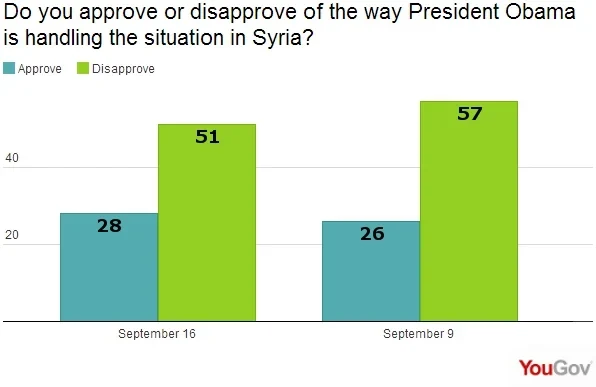
The President’s overall approval rating has been declining. This week, however, that decline has slowed. But his ratings continue to be low. This week, 41% approve of the way the President is handling his job. 53% disapprove, slightly better than his 38% approval rating in last week’s Economist/YouGov Poll.
